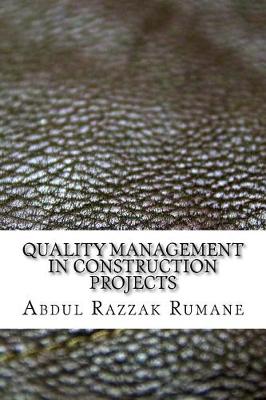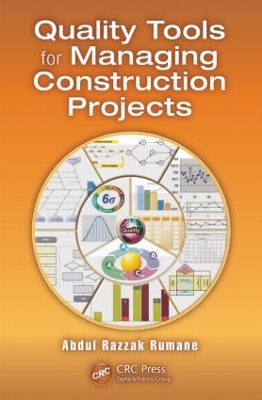Systems Innovation Book
2 total works
Concise and easy to read, Quality Management in Construction Projects presents key information on how to approach quality assurance for construction projects. Containing quick reference tables and a wealth of figures, the book presents valuable quality related data and guidelines. It provides coverage that spans from the inception of a project through issuance of a completion certificate.
Go the extra distance and become the consummate professional:
Learn about different types of contract deliverable systemsExplore important points to be considered while developing detail design and shop drawingPlan for major activities during construction processCreate design review checklistsAnticipate costs involved with qualityUnderstand reasons why an executed work may be rejectedDevelop ways to assess your quality effortsIn addition to covering standard procedures and concepts, the author introduces and discusses a wide range of-the-state-of-the-art-tools and approaches that professionals can use to develop an Integrated Quality Management System most suitable for their specific project. These include Six Sigma, TRIZ, and Total Quality Management, as well ISO 9000, ISO 14000 Environmental Management System, and OHSAS 18000
This information will also prove valuable for cutting-edge instructors who wish to provide engineering/management students with in-depth knowledge about current practices and familiarize them with the vernacular used in discussing quality assurance practices within the construction industry.
Dr. Abdul Razzak Rumane's work in Quality Management in Construction Projects has earned him a nomination for ASQ's Philip B. Crosby Medal. This award is presented to the individual who has authored a distinguished book contributing significantly to the extension of the philosophy and application of the principles, methods, or techniques of quality management.
Dealing with such a multi-layered and fungible intangible as quality during the design and construction process is difficult for all parties involved. To the architect, quality means an appealing and enduring design, but to the builder, it means understandable documents that, when acted upon, lead to an enduring, well-made structure. To the owner, it is the end result: a building that is not only fit for the purpose, but a positive addition to its surroundings. Reconciling these seemingly contrasting priorities requires processes that are embedded not just at the project level, but within the entire enterprise with designer, builder, and owner committed to integrating quality into all their business processes.
Quality Tools for Managing Construction Projects not only details the importance of developing a comprehensive management system, but provides the tools and techniques required to do so. The book examines the usage and applications of tools and techniques in different phases of a construction project, focusing on plan quality, quality assurance, and quality control. Following the construction cycle, Dr. Rumane delineates the quality tools and their application, ending with the implementation of quality systems throughout the entire design and construction cycle.
The book demonstrates how these tools can help in planning, executing, monitoring, and controlling a project—evolving project management into a system that ensures project deliverables consistently meet the defined scope on schedule and within budget. The author’s systems perspective recognizes and supports the ideal collaborative approach that modern design and construction projects need. Dr. Rumane then demonstrates that successful quality management is more than a series of handoffs between teams who’ve completed tasks.

